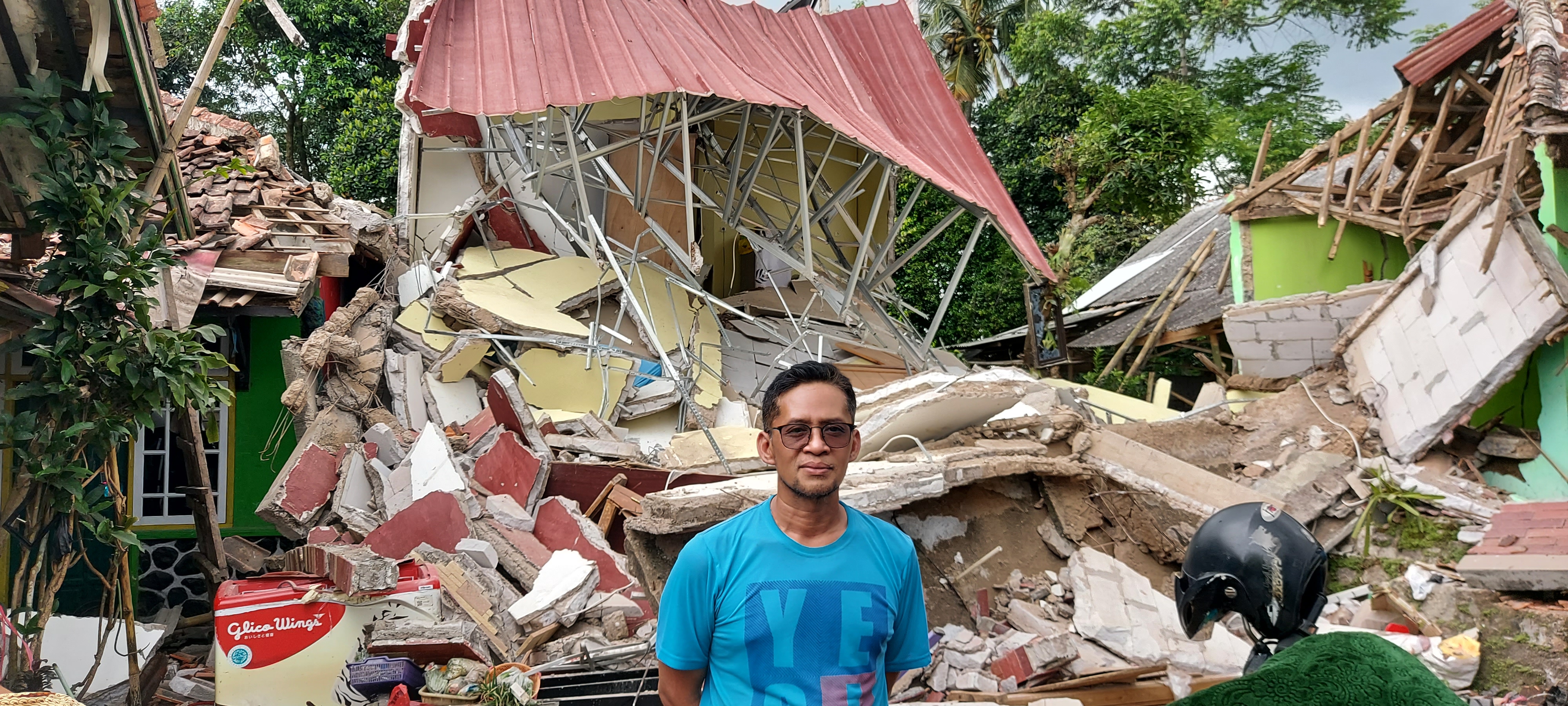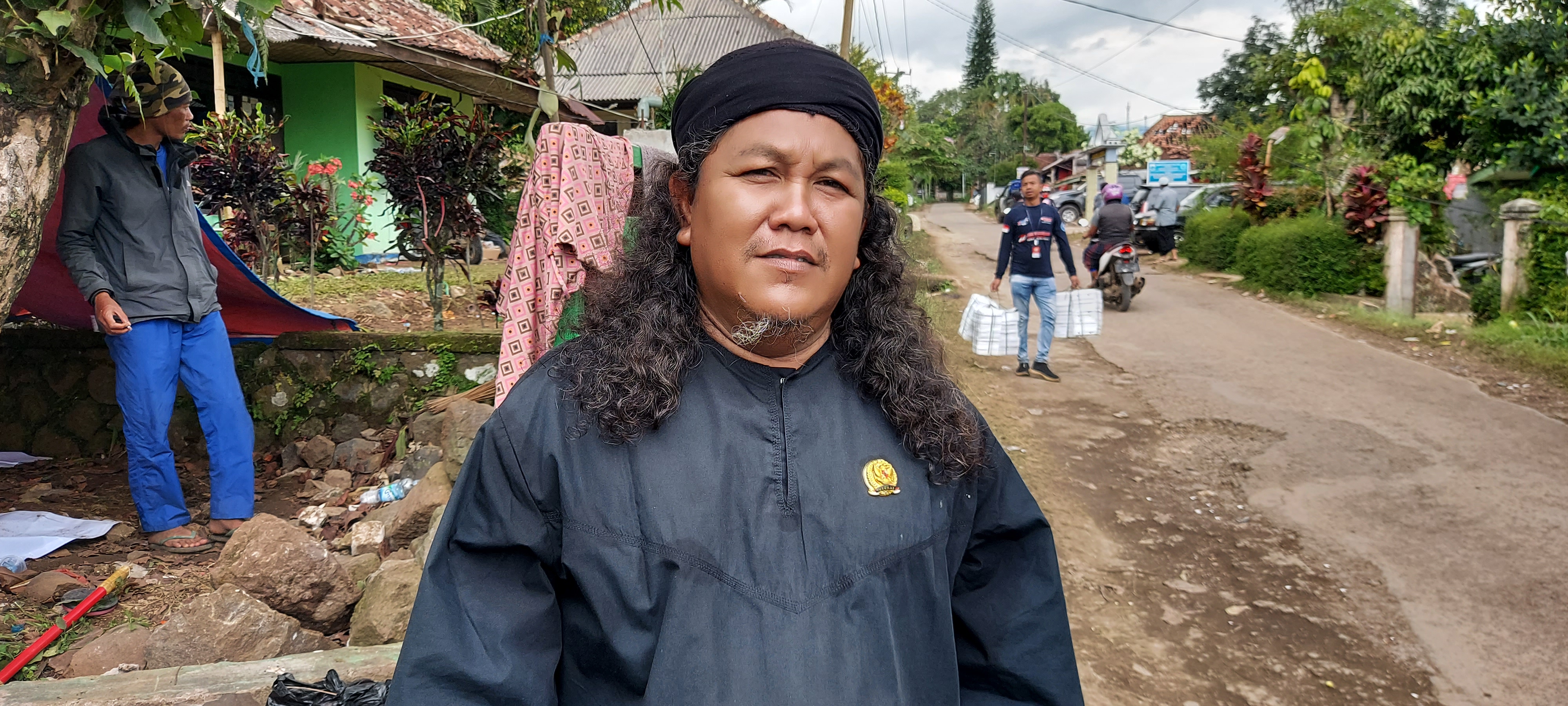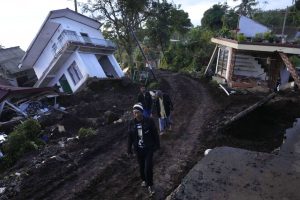When a 5.6 magnitude earthquake rocked the sleepy village of Gasol in West Java, Indonesia on November 21, local resident Ruslan was hopeful. His home, which he had just finished building six months prior, was still standing.
But his optimism was short-lived.
The next night, an aftershock hit Gasol and Ruslan’s home came crashing down. To the left of it, his cousin Wida’s bungalow had collapsed the day before. To the right, his other cousin Deudeu’s home was similarly razed to the ground. In front of him, his uncle Suhandi’s house also lay in ruins.
Ruslan’s extended family and neighbors were left with nothing.
“At least we are all still alive,” he told The Diplomat. “But I don’t know how we are going to rebuild and move forward from here.”
The initial earthquake, while not as large as previous earthquakes in Indonesia, was still large enough to release significant seismic energy. This was partly because it was a relatively shallow earthquake. Unlike deeper seismic events, shallow quakes are not able to dissipate their energy within the earth’s crust and “are thus felt much more intensely,” said Dr. Eddie Dempsey, an associate professor in geology at the University of Hull in the United Kingdom. He added that Ruslan’s misfortune in losing his home only after the first earthquake was not uncommon.
“Whilst the initial earthquake has passed, it is likely that aftershocks will continue in the area for some time,” Dempsey said. “Building and infrastructure damage during earthquake events is cumulative, each smaller event after the main quake can contribute to further compromising the structural integrity of buildings and infrastructure and delayed collapses and failures can occur. The topography of the region and the intrinsic geology of the slopes has already contributed to widespread landslides, and this heightened landslide risk will continue for some time.”
Following the earthquake and the subsequent landslides that it triggered, at least 335 died and more than 56,000 houses were damaged, according to government data.
The government has since announced that it will reimburse residents to the tune of up to IDR 60 million ($3,829) for seriously damaged houses, up to IDR 30 million ($1,914) for moderately damaged homes, and up to IDR 15 million ($957) for lightly damaged houses, although this week Coordinating Minister for Human Development and Culture Muhadjir Effendy said that the government was looking to increase these figures following ministerial approval.
The government has also pledged to provide other cash payouts to residents for things like funeral services, medical care, and to pay for basic necessities while they wait to be re-housed or for their homes to be rebuilt.
Yet Ruslan and his extended family worry that any amount of money earmarked for post-disaster recovery may not reach them in full. “The government announced that we would get a lump sum, which is good, but we worry that we won’t get to see all of it,” Wida told The Diplomat. “We worry it will come with a lot of cuts.”
Wida added that there is a fear among local residents in Gasol that the government funds could be misappropriated before they are handed over to victims of the earthquake, something that has happened in similar cases in the past in other parts of Indonesia.

Ruslan stands in front of what remains of his home in Gasol, West Java, following the earthquake on November 21, 2022. (Aisyah Llewellyn)
According to a 2019 report by Indonesia Corruption Watch, the country’s frequent natural disasters offer plentiful opportunities for corrupt officials to siphon off funds intended for relief. Following a deadly earthquake in Lombok in 2018, members of the Regional People’s Representative Council were arrested and accused of misappropriating funds for the rehabilitation of schools. The Corruption Eradication Commission also investigated a bribery case linked to the construction of a drinking water supply system project in Lombok, while in Banten in Java, police investigated an extortion case involving the repatriation of victims’ bodies from a local hospital following a deadly tsunami, also in 2018.
“In the context of rehabilitation, especially post-disaster development, intensive coordination is needed between the Ministry of Public Works and Public Housing and all parties related to natural disaster management such as local governments and the Disaster Mitigation Agency (BNPB),” said Fadli Usman, a response team leader with Save the Children Indonesia.
“The challenges faced are quite substantial, for example when there has been an allocation for housing construction from the government, but there is no standard mechanism for implementation.”
Usman added that rebuilding homes and infrastructure such as schools following a disaster can take anything from one to three years, something which other experts said was often exacerbated by local terrain and the logistical challenges in working in areas like the village of Gasol, which is only accessible via a single lane road.
“Rebuilding after events of this kind is complex,” Dempsey of the University of Hull said.
“The first priority will be re-establishing the main transport and communication networks. Administrative centers are the focus of this initial work as these are needed to organize and facilitate the rebuilding and recovery of the region. As a result the more remote and rural areas are often the last to get reconnected.”

Mohammad Ilias, a resident of Cianjur in West Java, Indonesia, who has traveled frequently to Gasol to support extended family affected by the November 21 earthquake. (Aisyah Llewellyn)
Wida, who is now living with the rest of her family in a temporary shelter, told The Diplomat that while local aid groups, charities, and government departments had been very generous with donations, her family did not know how long this would last and when they would be left to fend for themselves if reconstruction took months or years to complete.
“We have enough food to last until the end of the week,” she said. “But what about the week after that? And the week after that?”
Standing next to her in Gasol was her brother-in-law Mohammad Ilias, who said that his house in the main city of Cianjur had survived the quake, but that he drove around 40 minutes to the village of Gasol every day to provide his extended family with emotional and logistical support.
Raising his hands to the sky, he said that he hoped that Allah would watch over the family and provide them with their daily needs until they were able to pick up the pieces left behind by the devastating natural disaster.
“The general population will now be in a general state of shock, many people grieving the loss of life and property, and many more worried about more earthquakes, landslides and building collapses,” said Dempsey.
“Long after the news cameras have left, these people will still be coming to terms with this event and endeavoring to rebuild their lives.”

































